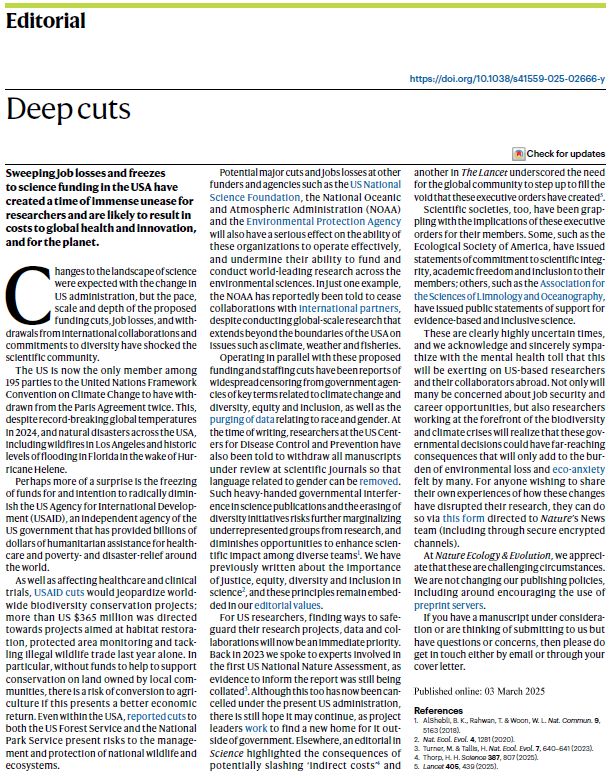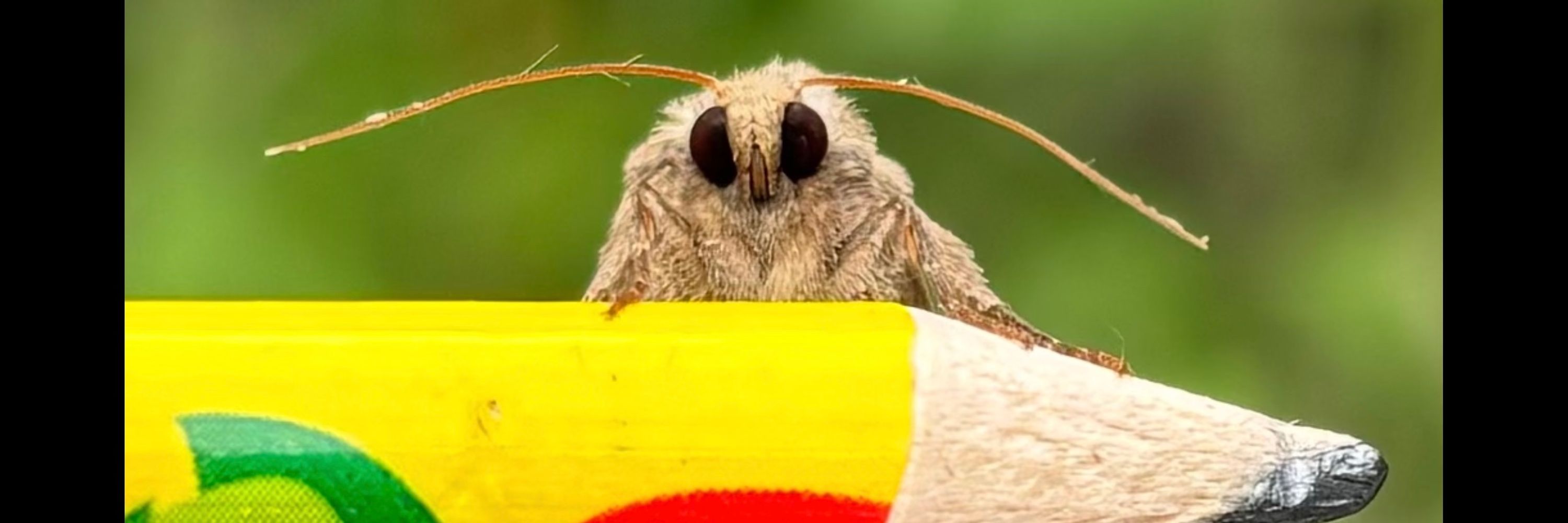
Chief Editor, Nature Ecology & Evolution. Views my own. nature.com/natecolevol/
Reposted by Simon Harold, Benjamin Wildermuth

Featuring research on 🧪
🐝 pesticide impacts on wild bees
🪺 population genomics of avian brood parasitism
🌱 the origins of terrestrial herbivory
Cover image from Abraham et al. www.nature.com/articles/s41...
Reposted by Simon Harold

Featuring research on 🧪
🦏 rhinocerotid dispersal in the mid-Cenozoic
🐟 biodiversity responses to freshwater stressors
🦋 evolution of butterfly eyespots
Cover shows a Korean seahorse, from Meyer et al. www.nature.com/articles/s41...
Reposted by Simon Harold

Join editors from @natecoevo.nature.com , @natclimate.nature.com , @natrevearthenviron.nature.com & @commsbio.nature.com 14–16 Feb 2026
Reposted by Simon Harold

César Marín @cmarin.bsky.social feels privileged to work among giants like the conifer Fitzroya cupressoides www.nature.com/articles/s41...
Free to read: rdcu.be/eQMnK

Q&A with Stéphane Blanc, research director at CNRS, about the Long-term Studies in Ecology and Evolution programme and its priorities for supporting long-term monitoring and research
Free to read: rdcu.be/eQltU
Reposted by Simon Harold, Benjamin Wildermuth

Featuring research on 🧪
🦆Threats to migratory shorebirds
🌍Phosphorus constraints on global photosynthesis
🦠Evolution of the meerkat MHC
Cover shows a larva of an emperor moth, from Li et al. www.nature.com/articles/s41...
Reposted by Simon Harold

Combining science and policy for a unified global soil biodiversity observatory www.nature.com/articles/s41...
Parnell et al. outline the Global Soil Biodiversity Observatory, an initiative that aims to develop standardized indicators to support evidence-based policymaking
Reposted by Simon Harold
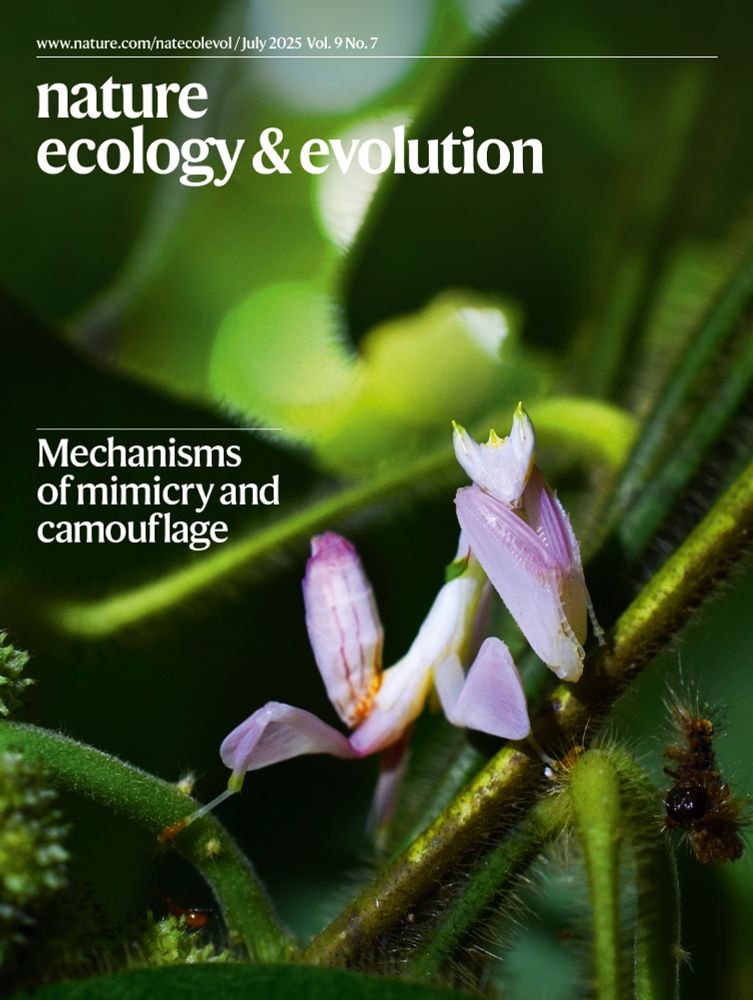
🧪Featuring research on:
🌴Regenerating tropical forests
🐊Early archosauromorph reptiles
🦑Bobtail squid visual and nervous systems
Cover shows an orchid mantis, from Pei et al. www.nature.com/articles/s41...
Reposted by Simon Harold

As the UN Ocean Conference #UNOC3 begins, Gattuso et al argue that US federal science cuts pose a profound global challenge rdcu.be/ep896 🌊
Reposted by Simon Harold
Reposted by Simon Harold

Precision ecology for targeted conservation action www.nature.com/articles/s41...
Spake et al. argue that applied ecologists should draw on insight from medicine and marketing to provide decision-makers with specific, site-level intervention strategies
Reposted by Simon Harold

Featuring research on:
🦠 Primordial metabolism
🦋 Butterfly diversity
🪸 Reef restoration
Cover shows a prothonotary warbler at the entrance of a nest cavity. From Lipshutz et al. www.nature.com/articles/s41...
Reposted by Simon Harold
Reposted by Simon Harold

Plastic waste in the environment can modify habitats and change the mating, feeding and dispersal behaviours of organisms. Haney & Rochman discuss the emerging understanding of the ecological and evolutionary consequences of these effects www.nature.com/articles/s41...
Reposted by Simon Harold

Reposted by Simon Harold
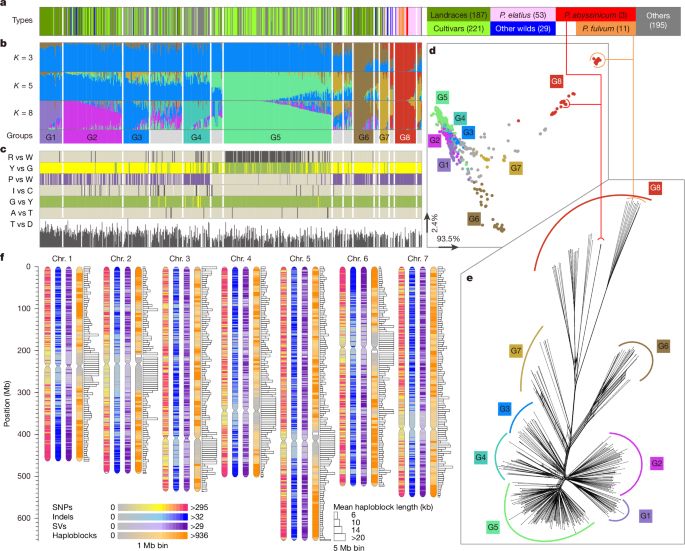
159 years after Mendel published his work, this is a real delight (especially for a geneticist)
🧪
@nature.com
www.nature.com/articles/s41...
Reposted by Simon Harold

Reposted by Simon Harold

Featuring research on:
🐟 mariculture impacts on biodiversity
🌿 genetics of plant camouflage
🫁 lung evolution
Cover shows an overwintering boreal fire in the Northwest Territories, Canada from Baltzer et al www.nature.com/articles/s41...
Reposted by Simon Harold
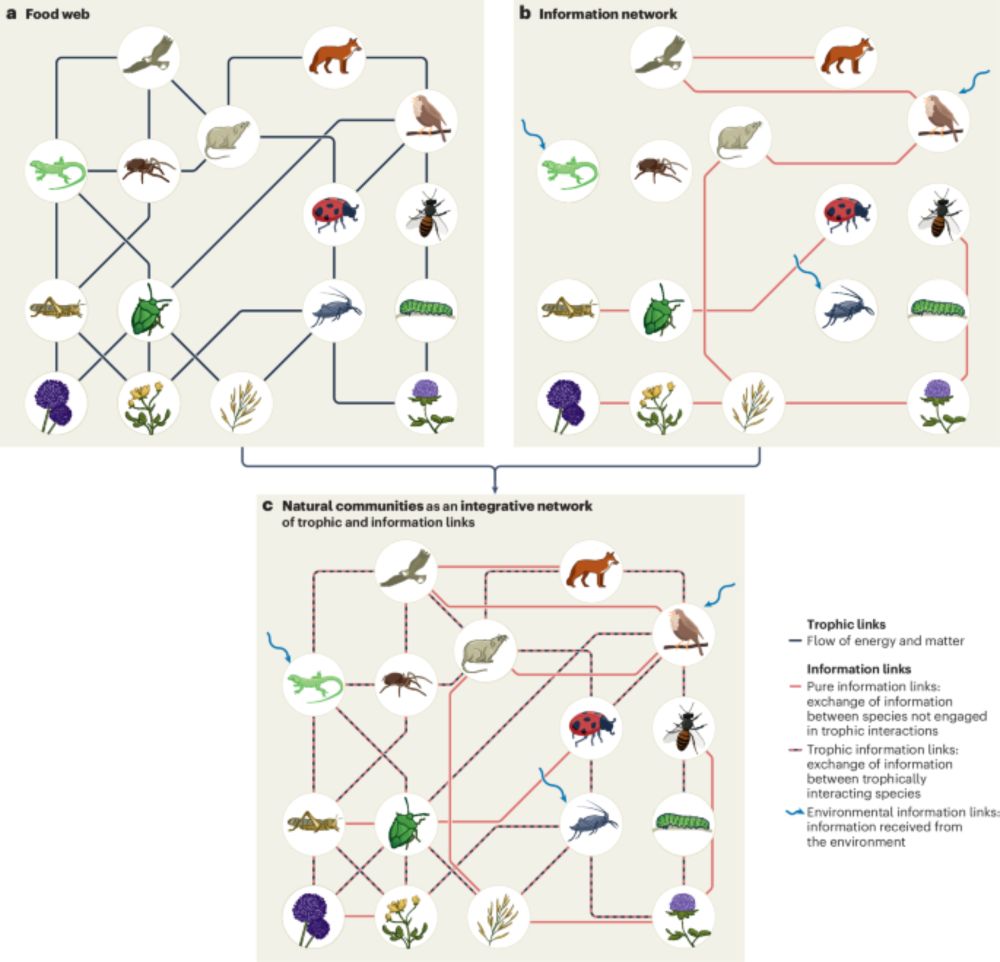
Ecological network research typically focuses on flows of matter and energy, but species also exchange information signals and cues that influence behaviour and movement. Here, Brose et al argue that the information network of nature is a crucial aspect of community organization.
Reposted by Simon Harold

https://go.nature.com/3Rjd1ol
Reposted by Simon Harold
Review and opinion topics this month include:
🦴 Digitizing natural history collections
🌊 Seagrass ecosystems
💻 AI as a way to fill biodiversity gaps
🍃 Biodiversity offsets
🔁 Conservation translocations
🌎🧪
Reposted by Simon Harold
Reposted by Simon Harold
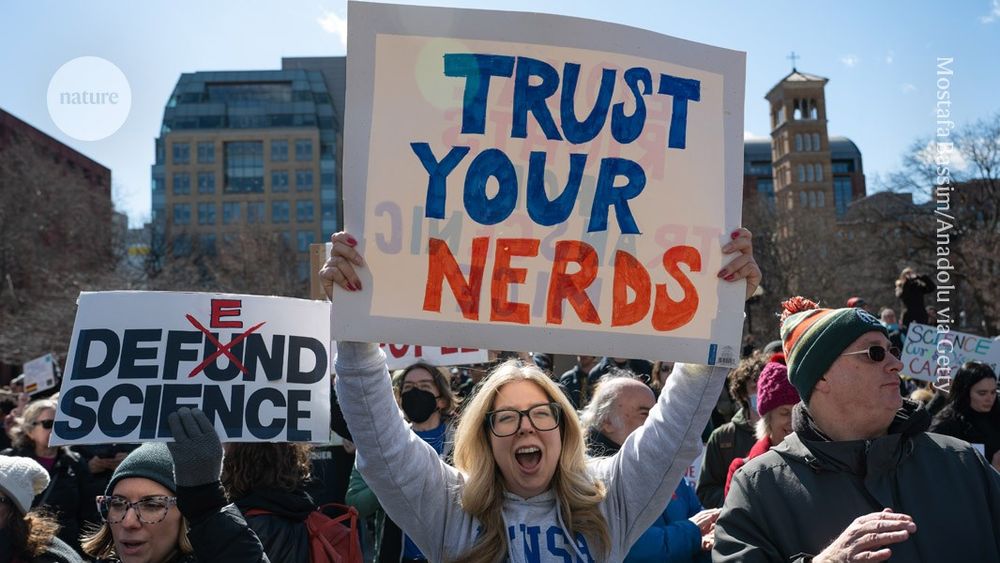
Are you thinking about leaving?
https://go.nature.com/424ejK8
Reposted by Simon Harold

Joana Meier @joanameier.bsky.social is fascinated by the diversity and mimetic colour patterns of glasswing butterflies rdcu.be/edgxh
Reposted by Simon Harold

@biomedcentral.bsky.social #ecoevo #evosky 🌏
Featuring research on:
🌲boreal forest resilience
🦠microbial community invasion
🧬evolutionary divergence of X–Y chromosome genes
Cover shows a micro-CT scan of the humpback #anglerfish from Miller et al. www.nature.com/articles/s41...
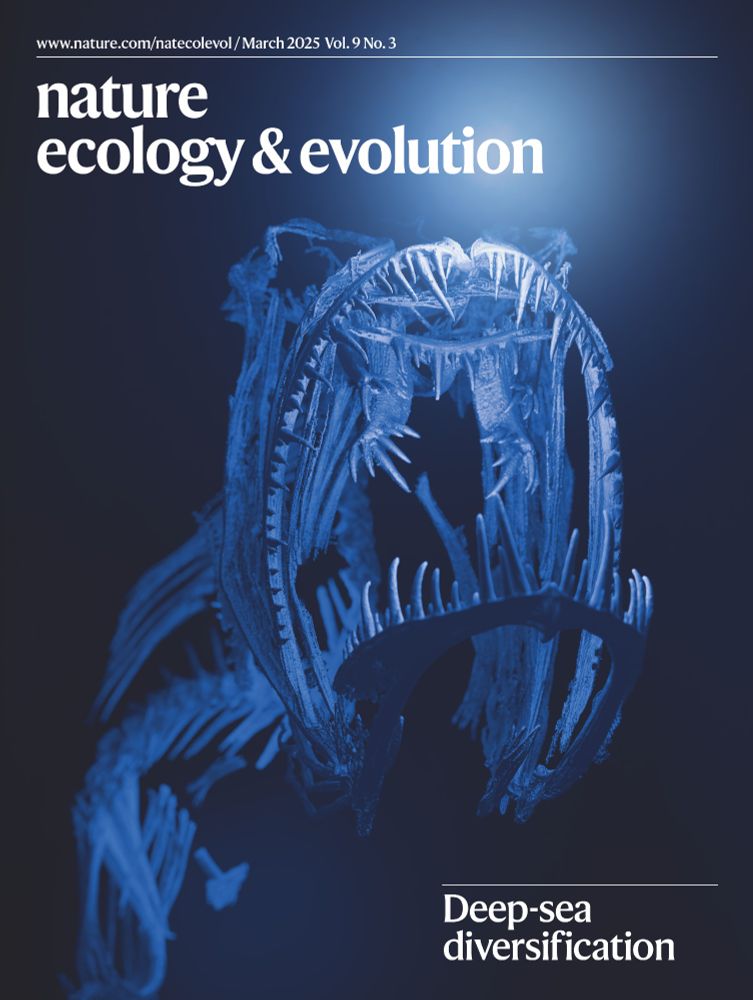
Reposted by Anping Chen, Simon Harold

Featuring research on:
🌲boreal forest resilience
🦠microbial community invasion
🧬evolutionary divergence of X–Y chromosome genes
Cover shows a micro-CT scan of the humpback #anglerfish from Miller et al. www.nature.com/articles/s41...
Reposted by Simon Harold

Reposted by Simon Harold
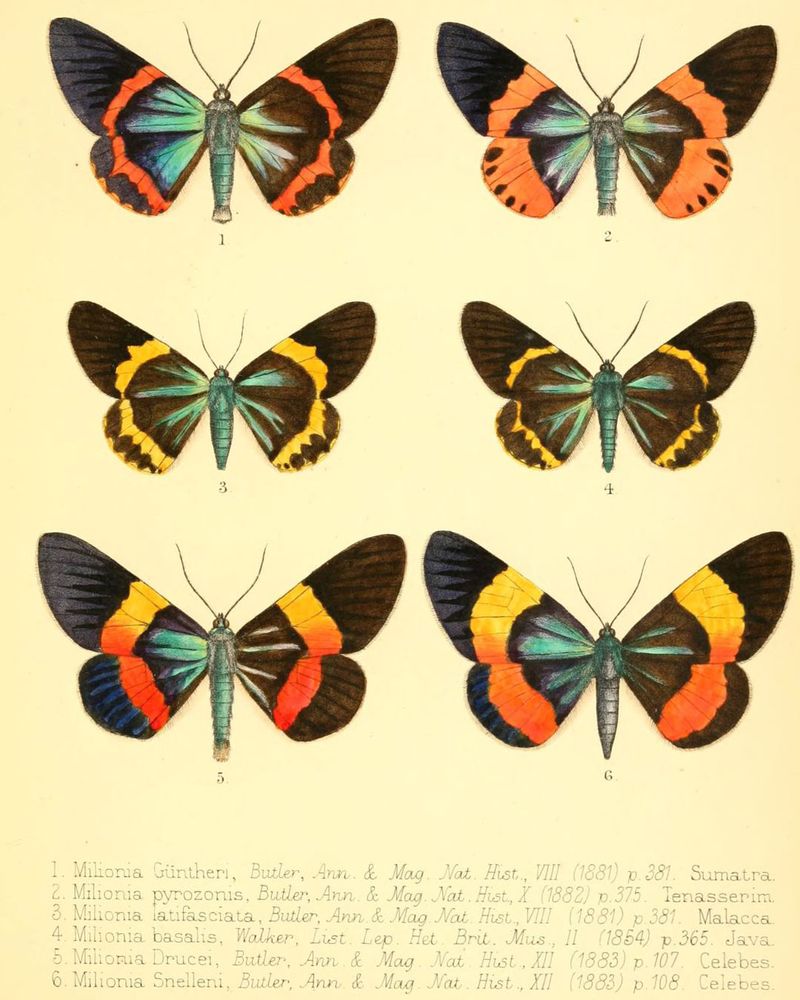
We don’t know what she looks like, or very much about her life. ❓
Still - we’d like to turn the spotlight on this former employee this #InternationalWomensDay, for a few particular reasons.
Deep cuts: www.nature.com/articles/s41...
